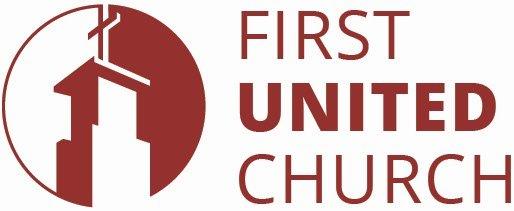Monday Musings: “White Privilege: Let’s Talk”
During the summer of 2020, I had the opportunity to engage in study, reflection, and conversation with a small group of UCC clergy utilizing the UCC curriculum “White Privilege: Let’s Talk.” And, ever since that time, because of the impact it had on my life, I have wanted to offer this curriculum to others. Toward the end of Advent, as I began thinking about the Lenten season, the 40 days of Lent seemed a perfect time to do just that.
Lent invites us to thoughtful reflection and prayerful repentance that we might be transformed more fully into the people and the community God calls us to be. I believe that for white people seeing and understanding how white privilege functions in the United States is an essential part of that reflection, repentance, and transformation. As the curriculum’s introduction states, “If you are a person of color in America, the seeing of privilege is inescapable. If you are white, you have most likely not been conditioned to even look for, much less see, where your privilege functions.”
As you consider whether you might participate as a member of First United’s “White Privilege” cohort this Lent, it seemed it might be helpful for me to offer a bit of my experience and how I found engaging in this process to be meaningful.
As I engaged with the “White Privilege” resource last summer, I valued how each of the five authors share their own perspectives while also inviting participants to reflect on these thoughts and come to our own understandings. While the authors share their best thinking for how to engage in antiracism work and be an ally, they do not present their comments as a-once-and-for-all checklist that is being prescribed for participants to follow; rather they invite thoughtful reflection asking open-ended questions for participants to consider.
I appreciated how we white folks were invited and challenged to see how white privilege and race have impacted and continue to impact our own lives, challenging the idea that race and racism only impact the lives of people of color. This invitation, this challenge is clearly offered through the practice of writing a spiritual autobiography through the lens of race, a core piece of the curriculum. Each week I was asked to reflect and journal on a few questions about my own history (as were all participants), and as the curriculum drew to a close, I was invited to combine my journal entries and add additional stories to form a more comprehensive autobiography attentive to how race, privilege, and power have impacted my life’s story. We were each then invited to share portions of our autobiographies with the group. I found this practice of truth-telling to be exceedingly meaningful and hope you will too.
Finally, I was grateful for how the authors, all of whom have been engaging in antiracism work for quite some time, share what they have found to be best practices for antiracism work, offer widely-held definitions for consideration and promotion, and state facts relating to race, privilege, and power that we simply need to be aware of and consider as we reflect. I found engaging with the personal experiences, commonly-held definitions, and factual information shared by the authors encouraged valuable reflection and conversation both with my cohort and in my personal life.
“White Privilege: Let’s Talk” is not a perfect curriculum; it doesn’t provide “the” answer to white supremacy and racism. It is an invitation and a challenge directed particularly to white people, that we might begin to understand the way race and privilege impact our lives and dedicate ourselves to taking the next faithful step on the long road to racial justice. I hope you will prayerfully consider participating in this opportunity with fellow members and friends of First United this Lent.
Meetings of First United’s “White Privilege” cohort will take place via Zoom 6:30pm-8:30pm on Mondays throughout the season of Lent (February 22nd; March 1st, 8th, 15th, 22nd, 29th; and April 5th). Participants must commit to attending all seven weekly sessions. The cohort is limited to ten participants and will be facilitated by Amanda Udis-Kessler and me. Please contact me by Sunday, February 14th to reserve your place in the cohort and with any questions.
Peace,
Rev. Jessica Petersen-Mutai, Senior Minister
(she/her/hers)
Cell: 812-727-4414
Email: revpetersenmutai@firstuc.org

 Follow
Follow